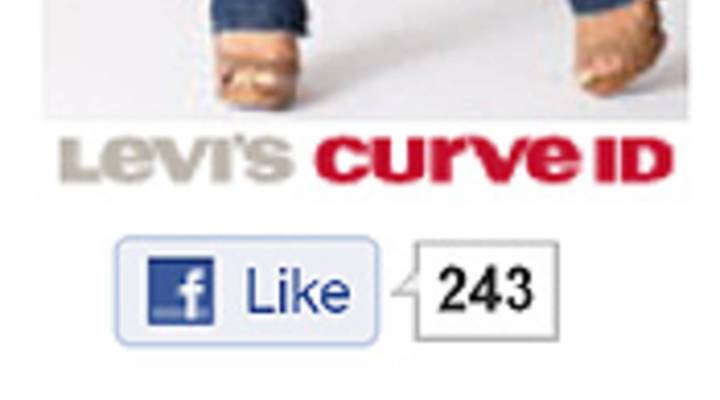
Marketers like that you "Like"

TEXT OF STORY
Tess Vigeland: Thanksgiving weekend: too much turkey, not to mention pumpkin pie. Perfect time to lay on the couch and watch some football. But undoubtedly, many of you will choose instead to spend hours updating your Facebook page. Maybe adding your name to some new things you’re a fan of, thanks to the “like” button?
But as Marketplace’s Stacey Vanek Smith tells us, there is a lot more to that feature than simple affection.
Stacey Vanek Smith: See a cute picture of your friend’s Labradoodle?
Zing!
You like it. Read a great article about Fashion Week in the New York Times?
Zing!
You like it. A cool new tequila bar, “Wall Street 2,” the striped grandpa cardigan at Urban Outfitters…
Zing, zing, zing!
Since it was launched five months ago, nearly two million websites — from the New York Times to Pepsi to Yelp — have added the Facebook “Like” button to their web pages, and it’s not just about ego.
Sally Field: You like me, right now! You really like me!
When you click on the little thumbs up icon, you hand over your Facebook data to the company and it gets access to your friends’ data, too.
James Fowler is the co-author of “Connected: The Surprising Power of Our Social Networks.”
James Fowler: All of a sudden, they’re tapped in to this vast resource that is going to help them to have a much finer picture of each one of their consumers.
So that company you “like”…
Zing!
…Suddenly knows where you live, where you went on vacation, your favorite bands, your friends’ favorite bands. Just about everything on your Facebook page. And the “Like” button boils all that down for companies. Fowler says that’s what companies really like about the “Like” button.
Fowler: It used to be that the problem was, we didn’t have enough information. And now I think, increasingly, the probably is we don’t have enough tools to sift through all of these mountains of data that we’re collecting online. Essentially, what the “like” button is a one-question questionnaire.
In other words, pushing the “Like” button…
Zing!
…is like sending up a flare.
Whistle of flare flying up
A flare telling a company, “I like your products — offer me a deal!”
Andreas Weigend teaches social networking and data mining at Stanford.
Andreas Weigend: If you actually really deeply think about, it is that you are doing the broadcasting and they’re tuning in. I think it will change the behavior of the next billion people.
Weigend says the Facebook “Like” button is turning our relationship with business on its head. We are suddenly marketing products for companies: Flagging ourselves as people they should sell things to, endorsing the product to our friends and handing the company our friends’ information.
Megan O’Conner: We definitely have seen huge excitement and engagement around the “Like” button.
Megan O’Conner heads up social marketing for Levi’s, one of the earliest “Like” button adopters. She says the simplicity of the “Like” button is key. In the last six months, about a million people have said they “like” Levi’s.
Zing! Zing! Zing! Zing! Zing!
O’Conner: We have ratings and reviews on our site, which takes a little bit longer for somebody to engage with, and this is a really light touch way that people can engage with our products and really share that engagement with their friends.
So you can “like” the Jaded Rinse Boyfriend jean…
Zing!
…or the Cry Baby Skinny jeans…
Zing!
…and set up a Friends Store with your Facebook pals so you can see what they like, and they can see what you like and Levi’s can see what everybody likes.
“Connected” author James Fowler says the “Like” button is letting retailers tap into the all-powerful friends network for the first time.
Fowler: We tend to choose friends who are like us. Sociologists call this “homophily”: It’s a word that literally means “love of like,” birds of a feather flock together. Because we tend to choose these people who are like us, knowing what they like helps us to know what we like.
And we like to know what we like, says Matt Britton, CEO of social marketing firm Mr. Youth. He says we trust information from our friends.
Matt Britton: Say I’m searching for an Italian restaurant on the Upper West Side of Manhattan. If I see seven of my friends all like one restaurant, I’m going to go there, and I don’t care what else is on a search engine.
Britton says Google does not like this.
Bzzzzz!
because Google has focused on bringing us the most popular results for our searches, but Facebook could show us what is most popular among our friends. What they thought of the movie you’re buying a ticket for, or the brand of paint you’re thinking about using in the nursery.
Britton: In a lot of ways, your social network soon is going to be the web. The web is your social network, where every website you’re on and every web browser experience will be in some way socially enabled.
Britton says Facebook is hoping its “Like” button will just be the beginning, and eventually everything we search for, read about and shop for will be filtered through our network of Facebook friends. In other words, Facebook’s little button?
Zing!
Is, like, huge.
I’m Stacey Vanek Smith for Marketplace.
There’s a lot happening in the world. Through it all, Marketplace is here for you.
You rely on Marketplace to break down the world’s events and tell you how it affects you in a fact-based, approachable way. We rely on your financial support to keep making that possible.
Your donation today powers the independent journalism that you rely on. For just $5/month, you can help sustain Marketplace so we can keep reporting on the things that matter to you.











